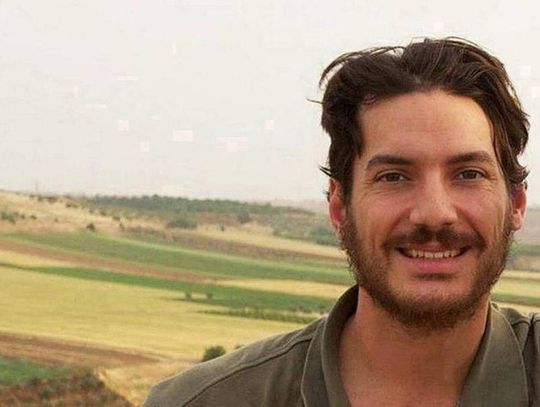Positive Effects of Suffering?
Recently, I was reading an article in Psychology Today about the positive effects of suffering. The article tried to make a case for something that the psychologists are now calling “post traumatic growth.”
What it all comes down to is that psychologists are saying that some traumatic events – things like deaths, house fires, cancers, tsunamis, and wars – have a positive effect on the people who survive these events. Such survivors not only learned to cope with really bad things happening to them; they “gained positive life changes.” According to this article, these survivors gained inner strength, discovered skills and talents they never had, became more appreciative of the little things in life, learned to be more compassionate toward the suffering of others, and they even developed a deeper spiritual and philosophical awareness of life.
It's an interesting article. I've given a lot of thought and feeling to suffering over the years. My Polish father spent 5 years as a slave laborer in Nazi Germany, my Polish mother spent 3 years as a slave laborer after seeing the women in her family raped and killed by German soldiers. They were people who knew genuine and constant suffering, suffering that they were afraid would not end until it killed them.
Both of them carried the scars of the suffering all their lives. My dad’s scars were psychological and physical. My mom’s were mostly psychological. Did the suffering make them better people, people closer to God, people uplifted? I don’t think so.
What the suffering taught them was that the world was too often a terrible place, a place where what you held most dear to you was liable to vanish in a cold wind. I don’t think either thought that sorrow was a gift that God gives us. My parents were simple people, farm people. For them, suffering was a prod used to teach the recalcitrant horse or cow or mule to do what you wanted it to do. If my parents were lucky, the German guards in the slave labor camps would use suffering only this way, as a prod. If my parents and the other people in the camps weren’t lucky, the guards would impose suffering just for the pleasure of it.
Suffering was to be avoided. If I were to tell my mother that I just read an article that argued that suffering has some serious positive effects, she would just smile and say that I was foolish to believe such fairy tales.
But what should you do if you see someone suffering?
Help the person.
My father believed life is hard, and we should help each other. If you see someone on a cross, his weight pulling him down and breaking his muscles, you should try to lift him, even if only for a minute, even though you know lifting won’t save him.
John Guzlowski amerykański pisarz i poeta polskiego pochodzenia. Publikował w wielu pismach literackich, zarówno w USA, jak i za granicą, m.in. w „Writer’s Almanac”, „Akcent”, „Ontario Review” i „North American Review”. Jego wiersze i eseje opisujące przeżycia jego rodziców – robotników przymusowych w nazistowskich Niemczech oraz uchodźców wojennych, którzy emigrowali do Chicago – ukazały się we wspomnieniowym tomie pt. „Echoes of Tattered Tongues”. W 2017 roku książka ta zdobyła nagrodę poetycką im. Benjamina Franklina oraz nagrodę literacką Erica Hoffera, za najbardziej prowokującą do myślenia książkę roku. Jest również autorem dwóch powieści kryminalnych o detektywie Hanku Purcellu oraz powieści wojennej pt. „Road of Bones”. John Guzlowski jest emerytowanym profesorem Eastern Illinois University. — John Guzlowski's writing has been featured in Garrison Keillor’s Writer’s Almanac, Akcent, Ontario Review, North American Review, and other journals here and abroad. His poems and personal essays about his Polish parents’ experiences as slave laborers in Nazi Germany and refugees in Chicago appear in his memoir Echoes of Tattered Tongues. Echoes received the 2017 Benjamin Franklin Poetry Award and the Eric Hoffer Foundation's Montaigne Award for most thought-provoking book of the year. He is also the author of two Hank Purcell mysteries and the war novel Road of Bones. Guzlowski is a Professor Emeritus at Eastern Illinois University. fot.Depositphotos.com









